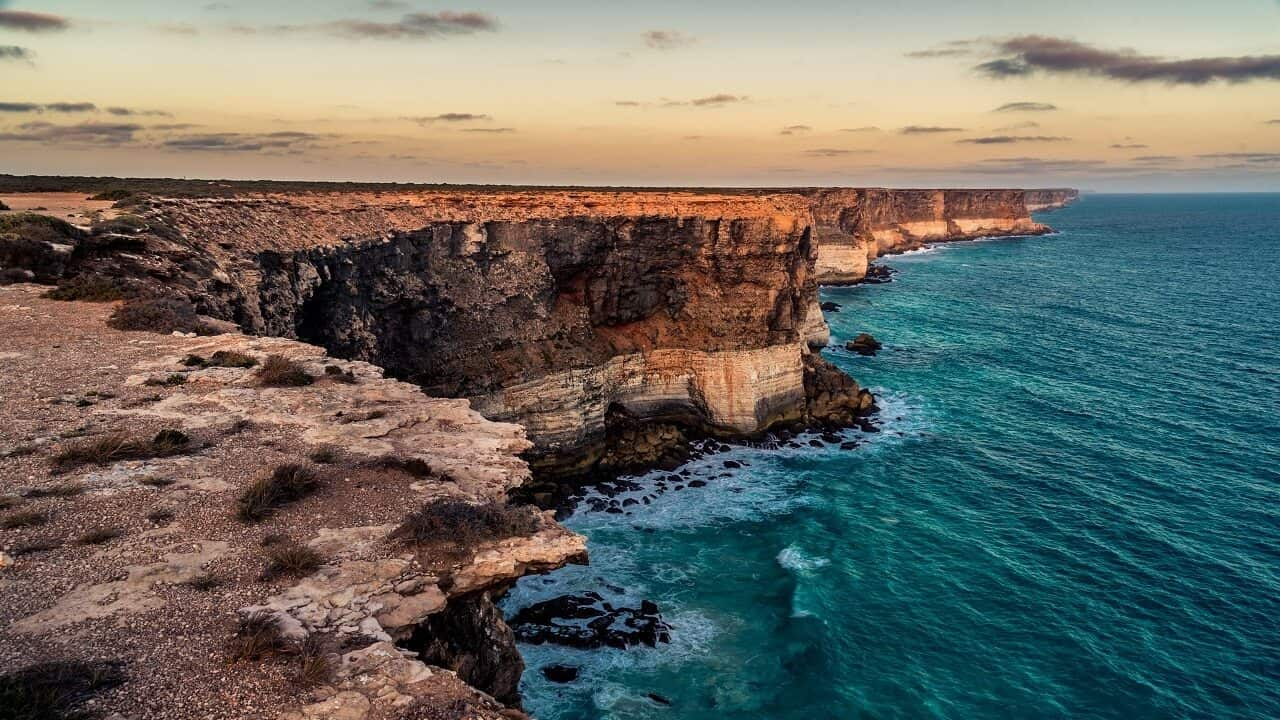Indigenous artists have spoken out against a plan to drill the Great Australian Bight for oil with an exhibition that explores the cultural connection between the Bight and the South Australian Matujara, Mirning, Kokatha, Yindjibarndi and Wirangu peoples.
The No Black Seas art exhibition has brought around 11 Indigenous artists together, from Arts Ceduna and Ku Arts, and is a response to the Norwegian oil giant Equinor's proposed plans to drill a deepwater oil well to a depth of two kilometers in the Bight, 370km offshore west of Port Lincoln by early 2020.
A leaked draft Oil Pollution Emergency Plan obtained by Greenpeace stated that if a spill was to occur in a “worst-case scenario”, 10 grams of oil per square meter could travel as far as Port Macquarie in New South Wales.
Equinor submitted an environmental report earlier this year with the National Offshore Petroleum Safety and Environmental Management Authority (NOSPEMA) who is expected to hand down their findings on November 14.
Mirning artist Estelle Miller said her piece was created to reflect the emotions of the people from within communities who rely on the Bight to keep their culture alive. "I done ceramic figurines for the exhibition, with the work that I did I wanted to capture the feelings of the people from within the community and around the place," she said.
"I done ceramic figurines for the exhibition, with the work that I did I wanted to capture the feelings of the people from within the community and around the place," she said.

"I wanted to capture the feelings of the people from within the community and around the place," said artist Estelle Miller. Source: Supplied
"It is bringing across sadness and how people would feel if drilling in the Bight [happened and] how sad it would be if there was to be an oil spill."
Ms Miller said the aim of the exhibition was to communicate to Equinor the potential impact an oil spill could have on culture and seafood.
"We don't want drilling in the Bight because we know [a spill] is going to affect our seafood and the culture up that way and the culture right along the coast," she said. The Bight is also home to a unique array of marine life with 85 per cent in the area found nowhere else in the world and contains more than 36 species of whales and dolphins, boasting more marine diversity than the Great Barrier Reef.
The Bight is also home to a unique array of marine life with 85 per cent in the area found nowhere else in the world and contains more than 36 species of whales and dolphins, boasting more marine diversity than the Great Barrier Reef.

"We don't want drilling in the Bight because we know [a spill] is going to affect our seafood and the culture," artists Estelle Miller said. Source: Supplied
One of these species is the tuna fish, specifically the southern bluefin tuna, which brings revenue to the area and provides fishery jobs for locals.
The leaked report that was seen by Greenpeace said that the tuna fish could be negatively impacted and that "commercial fisheries and aquaculture may be affected by temporary fishery closures, restrictions on sales … or effects to market value".
Ms Miller said the main fear coming out of the community is that Equinor would move onto another location and leave their mess behind.
"If there's an oil spell who is going to be left to clean it up? That is what everyone is afraid of," she said.
In June Equinor’s country manager they would not go ahead with the project if they “believed there was any chance of an oil spill”.
The company has had 239 oil spills but Mr Stangeland said none of these spills were "well incidents".
The exhibition, which is part of the Tarnanthi Art Fair, will run until December 7 at ACE Open in Adelaide’s city centre.











